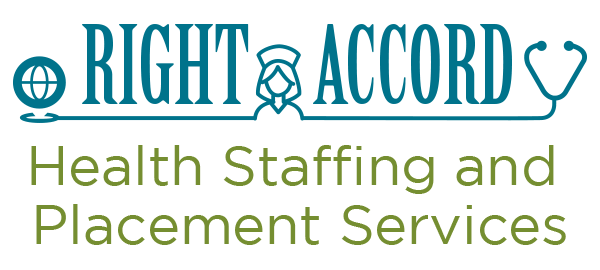Crossing Borders: The Global Migration of Skilled Nurses

There’s a narrative in the world of healthcare that often escapes headlines yet profoundly affects the global health landscape.
It’s the story of nurses, a tale not of their work within the wards and waiting rooms, but of their journeys across oceans and continents. This is about the migration of skilled nurses – a movement reshaping the face of healthcare around the world.
Understanding the Push and Pull
To truly grasp why nurses leave their home country, we must understand the forces at play – the
push of necessity and the pull of opportunity.
- Seeking Better Horizons: Many nurses leave behind families, friends, and familiarity, driven by the allure of better compensation, working conditions, and the prospect of a stable career. Countries like the United States, Canada, and those in Western Europe often offer wages and benefits that far surpass what’s available back home.
- The Academic Quest: For some, the journey begins not with a job offer, but with the pursuit of knowledge. Advanced degrees, cutting-edge research, and specialties beckon them to institutions in far-off lands, promising growth both personal and professional.
- Lifestyle and Security: Nurses are in search of not just professional satisfaction but also personal well-being. They migrate to countries where social security, safety, and quality of life are ranked high, where their families can flourish alongside their careers.
- Answering the Call of Duty: In regions ravaged by war, poverty, or natural disasters, nurses arrive not for monetary gain but motivated by a profound sense of duty to human life and welfare. Their skills often serve as a beacon of hope in places where medical resources are scarce.

The Ripple Effects of Migration
The movement of nurses has profound implications, not just for the individuals but for the health systems and economies of both the sending and receiving countries.
- Brain Drain vs. Brain Gain: Developing countries, already struggling with healthcare provision, face a ‘brain drain’ as their skilled nurses leave. Conversely, developed countries experiencing a ‘brain gain’ find their health systems strengthened by this influx of skilled labor.
- Economic Tides Turn: Nurses working overseas send remittances home, providing a significant source of foreign currency for their home countries. However, the initial investment in their education is often a loss that’s felt deeply in the local economy.
- Cultural Enrichment and Adaptation: As nurses migrate, they carry with them rich cultural practices and knowledge, enriching the fabric of their host communities. However, they must also navigate the complexities of integrating into a new culture, which can be both enriching and challenging.

Navigating the Pathways and Pitfalls
Migration comes with its own set of challenges, from obtaining visas to securing employment and integrating into a new health system.
- Qualification Recognition and Adaptation: Many nurses face the hurdle of getting their qualifications recognized. Bridging programs have emerged as a solution, offering courses that help nurses meet the host country’s standards.
- Language Barriers and Cultural Competence: Communication is key in healthcare. Nurses must often achieve proficiency in a new language, and beyond that, understand the cultural nuances that affect patient care.
- Professional Isolation and Personal Loneliness: Leaving one’s support network can lead to feelings of isolation, both professionally and personally. Mentorship programs and cultural assimilation initiatives are critical in providing support to these nurses.
The Stories That Drive Change

Every nurse who migrates has a story – like Maria from Mexico, who after moving to Canada, led an initiative to improve care for migrant farm workers, or David from Nigeria, who now works in a rural Australian community and trains local residents in first aid.
These individual narratives highlight the transformative power of nurse migration – not only in the lives of the migrants themselves but in the communities they serve.
Shaping the Future of Global Health
The migration of nurses is a key factor in the global health equation. It prompts questions about how we can create equitable systems of healthcare workforce distribution and what policies need to be in place to support both the nurses and the countries involved.
International collaborations, ethical recruitment policies, and investment in healthcare education globally are part of the conversation we must have to ensure that the migration of nurses leads to positive outcomes for all.
A Story That Continues…
As night falls and another shift ends, nurses around the world prepare for the day ahead – some in countries they’ve called home since birth, others in lands they are just beginning to understand. Their migration is a narrative of hope, challenge, and opportunity.
For these nurses, crossing borders is more than a career move; it’s a life choice – one that brings with it the promise of personal growth and the potential to impact global health outcomes. It’s a journey marked by courage, change, and the universal commitment to care that defines nursing.
As we turn the page on this chapter of global health, we recognize that the story of nurse migration is far from over. It’s an ongoing dialogue about the value of healthcare professionals and how best to utilize their skills in an interconnected world. It’s about recognizing their worth, supporting their journey, and above all, ensuring that in this global narrative, every character – nurse, patient, community – plays a vital role.
Let’s Get Started
Ready to become a US licensed nurse? Let us help you get started! Visit our website to learn how you can begin your journey as an American RN today.
In my previous Blog, I talked about the 3 Steps on Applying for Nursing Job in the USA. Check the link if you haven’t read it yet.
But if you’re interested to watch the full detailed 3-part videos in advance, here is the way to register and get your exclusive access:
 About the Author
About the Author
Rosemarie Tamunday Casanova, RN, BSN, MHA – CEO
I have been a nurse for over three decades and have worked in various settings, including long-term care facilities, teaching hospitals, and trauma centers. Over the years, I have held several critical care positions and even earned a master’s degree in Health Administration. My journey in entrepreneurship began in 2000 when I co-founded a staffing and recruitment agency with my partner, Health and Technology Professionals.
After relocating to Florida, I established my own Home Care Agency and have been operating it successfully for over a decade. Despite our success, I have always been aware of the ongoing need for registered nurses in the US. This led us to reignite our recruitment services and assist international registered nurses in finding employment in the United States.
